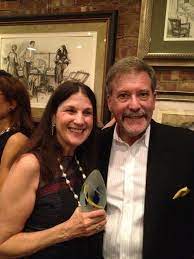“I think believing in God is a healthier way to live.”
 I am currently reading through Faye Kellerman’s novel “The Burnt House”, part of her “Peter Decker & Rina Lazarus” series.
I am currently reading through Faye Kellerman’s novel “The Burnt House”, part of her “Peter Decker & Rina Lazarus” series.
Rina is a life-long orthodox Jew, Los Angeles police detective Peter “Akiva” is Jewish by birth but was adopted by gentiles and only came to Jewish faith and observance about 17 years ago in the wake of his love for Rina.
Here is an interesting conversation about faith and doubt as it relates to ultimate justice:
“I certainly hope so. It pisses me off that a murderer has eluded justice.”
“He’ll eventually have to account for his actions. Maybe it won’t be to you or to the criminal justice system, but certainly to a higher authority. What goes around comes around: Middah keneged mid-dah.”
“I wish I believed that.”
“Sometimes I don’t even know if I believe that. But that’s the basis of faith, and I’m a woman of faith.” Rina put down her book. “These cold cases must be frustrating. … I know it upsets you that someone got away with murder, but eventually we all die, and that’s when everyone sees that, ultimately, someone else is in control.”
“But just suppose you die and that’s it?” Decker said. “I mean that’s really it! You’re nothing but maggot food.”
“Maybe that’s the case,” Rina said. “Since no one really knows, I choose to believe otherwise. Even if it turns out that I was sold a false bill of goods, I think believing in God is a healthier way to live. Faith is for the living, Akiva, not the dead.”

Faye & Jonathan Kellerman
I am a gentile, evangelical Christian, not an observant Jew, but I find it fascinating how such “Jewish” conversations resonate with my own experience as a believer. And I generally find “secular” novels with characters who are people of faith, whether Jewish or Christian, even if they are nor portrayed as perfect or saintly, more interesting than explicitly “Christian” novels where the believers tend to be “goody two-shoes” — because, let’s be real: we are not all perfect and saintly, either, and we have our share of crooks in our ranks even though we are quick to either close our eyes to their faults or else to disown them if they are too much of an embarrassment.
